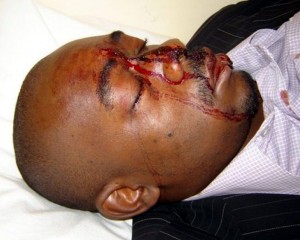Destructive Engagement: Violence, mediation and politics in Zimbabwe
The violence of 11 March and the months following in Zimbabwe indicated increased levels of state repression against dissenting voices in the country. Against the background of an enormous erosion of the political legitimacy of the ruling party, and an economy in freefall, the state has responded with characteristic brutality and contempt for its citizenry. Several features have marked the recent human rights abuses by the Zimbabwean state:
- Targeted attacks against the leadership of the MDC and the civic movement.
- A deliberate strategy of attacking the Tsvangirai formation of the MDC while showing leniency to the Mutambara formation in order to exacerbate the existing tensions between the two groups.
- Increased attacks in the homes of the activists, thus bringing fear into the intimate spaces of opposition members.
- The sense of impunity felt by the perpetrators as they conducted their attacks both in private and public spaces.
- In 90% of the attacks the perpetrators involved government agencies such as the police, CIO, CID, and army.
- 85% of the cases reported were in Harare, one of the two major urban areas considered to be ‘opposition territory.’
- The state has continued in its attempts to criminalise the opposition MDC through accusations that it is a ‘terrorist organisation’, dedicated to ‘regime change’ as part of a global imperial strategy. Thus far the Zimbabwean state has provided little evidence to back up this claim.
In the aftermath of the violence of March 11th the SADC initiated a mediation effort led by RSA President Thabo Mbeki, in order to find a negotiated solution to the Zimbabwean crisis. As this mediation continues, there are key elements that need to be a central part of any solution to the current situation:
- There must be an end to the state-led violence if there is to be any chance of a free and fair election process in 2008.
- The discussions around a new constitution must allow for transitional justice issues around truth and justice questions, to be dealt with as early in a political transition as possible. The culture of impunity on human rights abuses in Zimbabwe must stop
- Along with the need for broad economic reform, the human rights question must also form a central part of the process of political transformation in the country. The two issues must not be separated, nor can human rights concerns be deferred while economic development challenges are confronted.












![PASSOP, an NGO supporting Zimbabweans in De Doorns, is banned from entering the IDP camp, and here holds a meeting with them through the fence! They deliver “the Zimbabwean” newspaper – news from home read avidly. [30 May 2010] PASSOP, an NGO supporting Zimbabweans in De Doorns, is banned from entering the IDP camp, and here holds a meeting with them through the fence! They deliver “the Zimbabwean” newspaper – news from home read avidly. [30 May 2010]](https://solidaritypeacetrust.org/wp-content/gallery/a-fractured-nation/thumbs/thumbs_image113.jpg)
